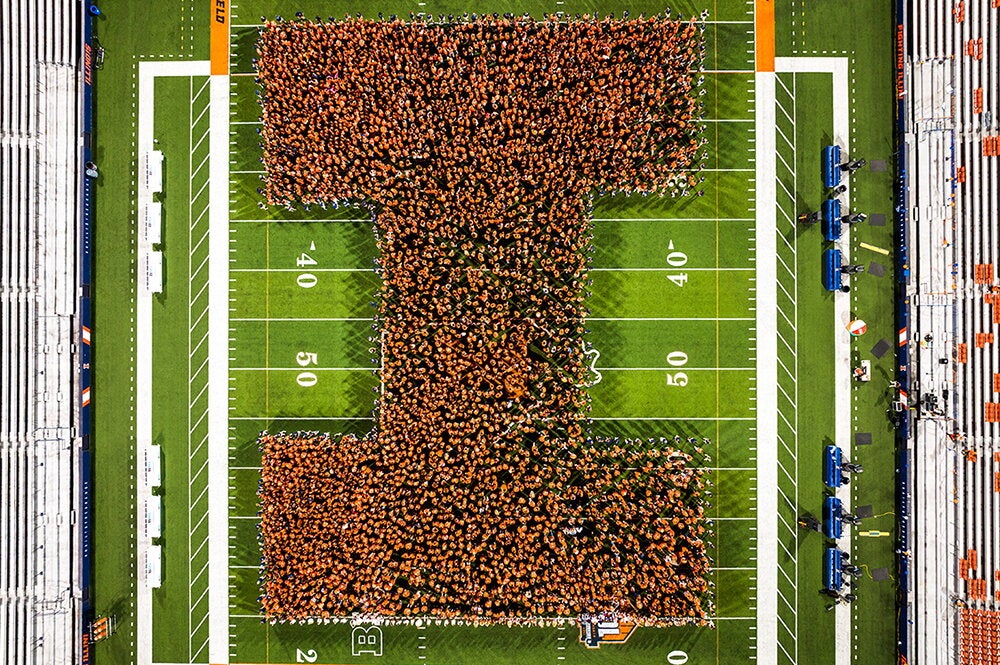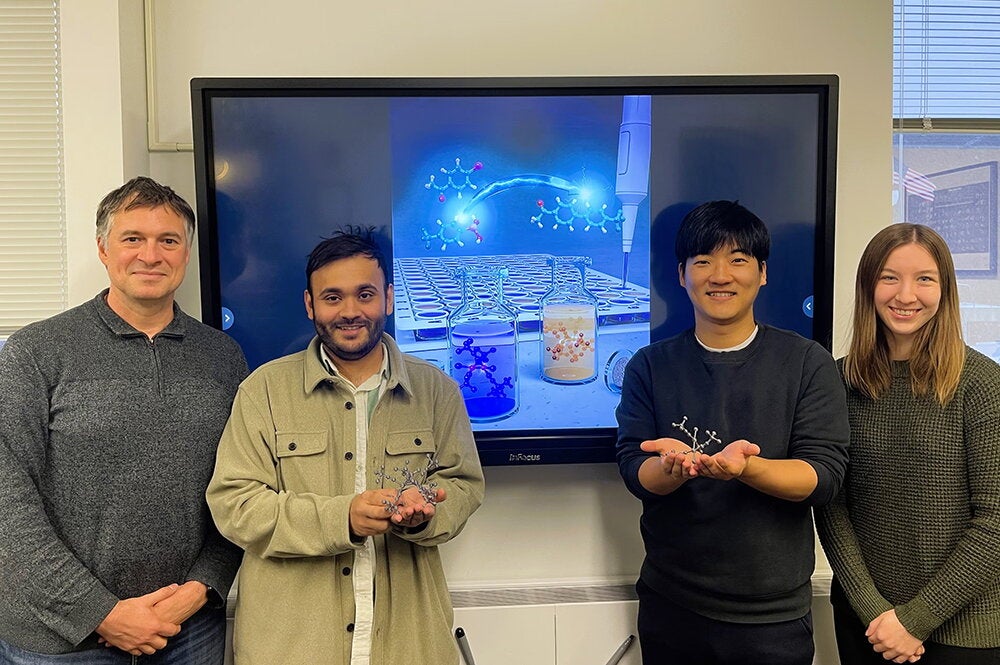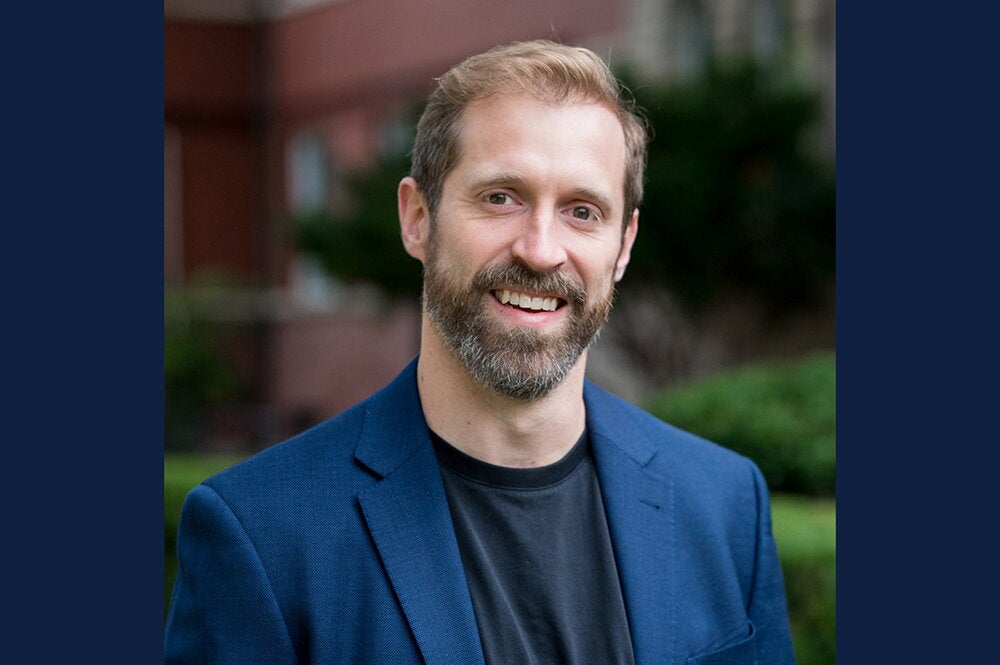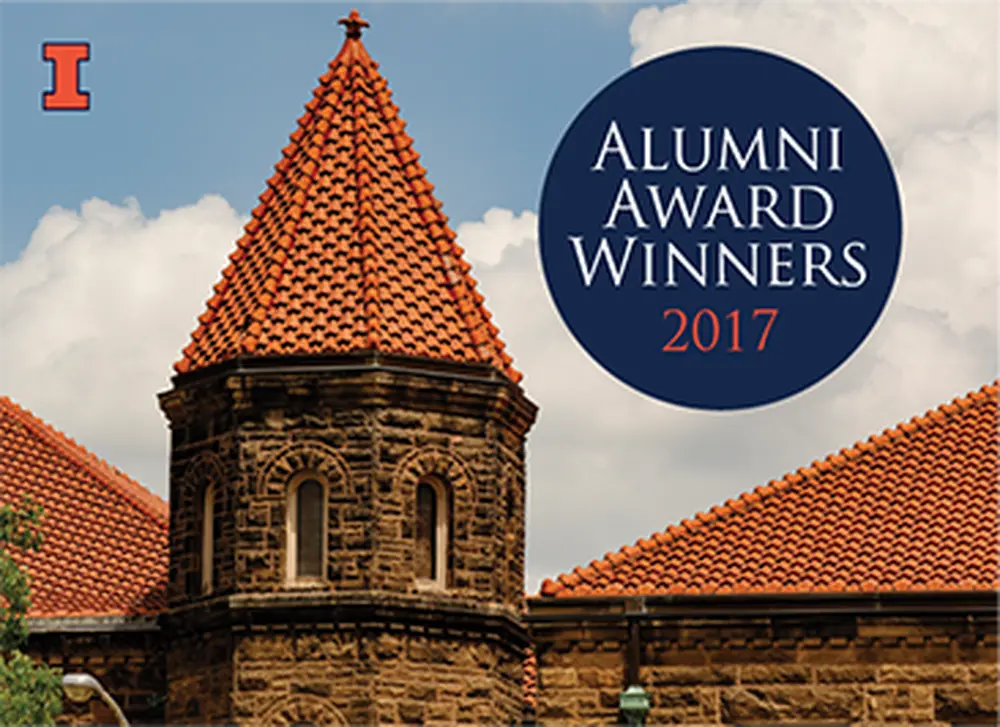
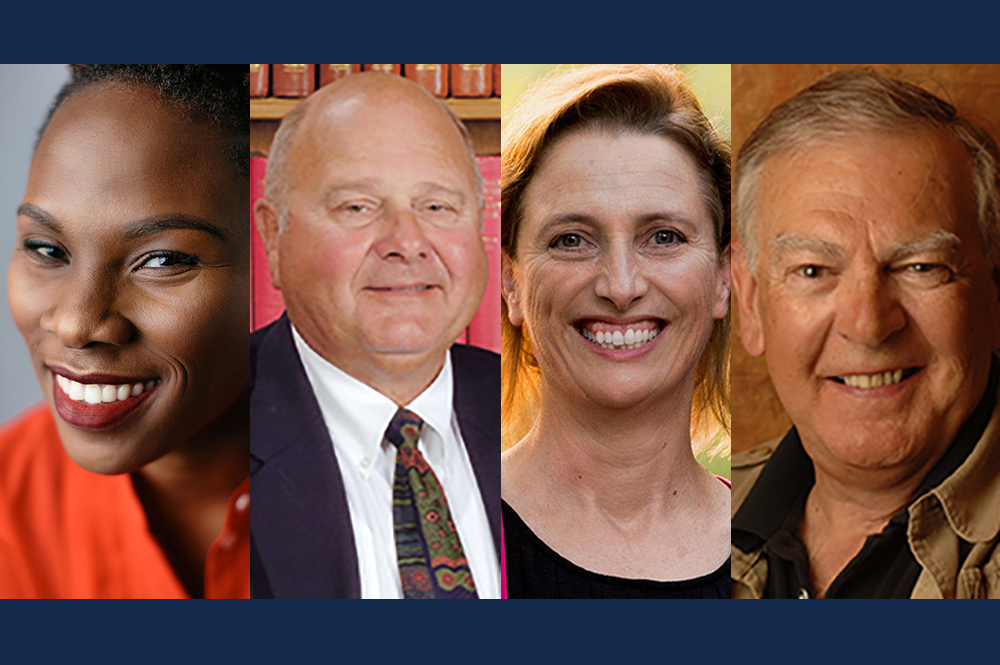
This year’s College of LAS alumni awards have a geographical twist.
One of the seven winners was born in Africa and moved to Chicago, while another honoree was born in the Chicago area and recently moved to Africa. But the LAS African connection doesn’t end there. A third award winner made one of the most famous archeological discoveries in Africa—the discovery of Lucy, a 3.2-million-year-old skeleton of a human ancestor.
Of the remaining award winners, many were also world travelers, whether it was making high-end real estate deals in London, Paris, and Brazil or spending an entire career as a professor on the other side of the planet in Australia.
But the most common shared trait is that all of these award-winning alums are world changers in their own right. One brought healing to over 1.2 million people around the world. And this year’s humanitarian award winner showed that you can change people’s worlds, even if you work close to home.
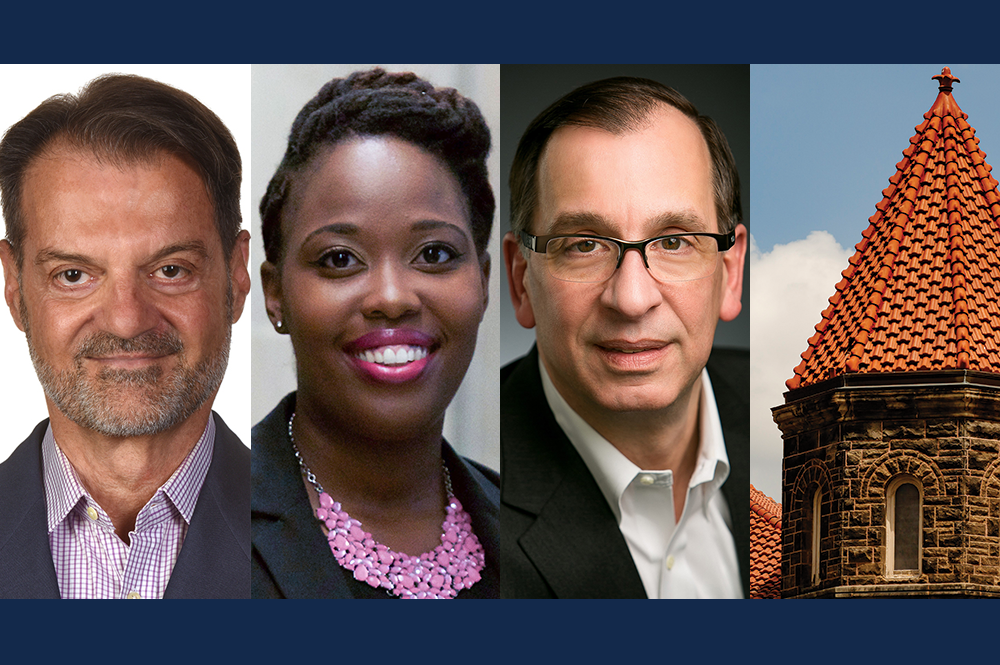
They will be honored on campus at this weekend's Homecoming celebrations. Click the award recipients' names to read more about their accomplishments.
Ifeoluwa "Luvvie" Ajayi (BS, '06, psychology) knew she had finally made it when Oprah Winfrey rubbed her head.
Ajayi had been selected for Oprah’s “SuperSoul 100 list,” and in June of 2016 she interviewed Oprah and the rest of the cast of a new TV show. Ajayi told Oprah she loved her character’s hair and mentioned that she had just recently cut her locks really short. Then, all of a sudden, Oprah grabbed her head.
Ajayi said it was like her anointing.
Ajayi’s multitude of fans have also anointed her as one of the most popular bloggers in the country, with 500,000 readers every month, 272,000 likes on Facebook, and 187,000 followers on Twitter. What’s more, her New York Times best-selling book, "I’m Judging You," released in 2016, is in development to be turned into a TV series, originally optioned by Shonda Rimes, creator and producer of the popular shows, "Grey’s Anatomy" and "Scandal."
Ajayi, who was born in Nigeria, started blogging on a dare from friends during her undergraduate years at the University of Illinois. Her current blog, called “Awesomely Luvvie,” covers everything from pop culture and what’s happening in her life to travel and politics.
She said the blog’s popularity is “all a beautiful surprise.” She is a recipient of the 2017 LAS Outstanding Young Alumni Award.
When a mine tailings dam burst in Brazil in November of 2015, it unleashed a wave of toxic “red mud” that traveled 55 miles to the sea, wiping out villages along the way and killing at least 17 people.
A tailings dam stores wastes from mining operations, and there are at least two major failures of these dams every year, said David Boger (MS, '64; PhD, '66; chemical engineering) who built his career studying the flow of liquids. He did the basic science behind innovative ways to store toxic tailings dam waste safely, going a long way to preventing similar disasters around the world.
Boger, a professor of chemical engineering at Monash University and the University of Melbourne in Australia, also developed what became known as Boger Fluids, which flow like liquids but also behave like an elastic solid.
Boger has been lauded with all types of awards, one of them being Australia’s prestigious Prime Minister’s Prize. In addition, he is proud of becoming, in 2005, a Fellow of the Royal Society in England, an organization that goes back over 300 years. Most recently, in 2017, he was inducted into the National Academy of Engineering in the United States.
He is a recipient of the 2017 LAS Alumni Achievement Award.
A major turning point in the life of Nancy Greenwalt (BA, '89, speech communication) came when she took a University of Illinois class on corporate advocacy, in which she studied how corporations handled public relations for the Exxon Valdez oil spill and the Tylenol capsule-tampering case.
Greenwalt realized that public relations, marketing, and communication are so powerful that they shouldn’t just be for industries. They should also be for the common good. This set her on the path of working on health care issues beginning in her undergraduate years at Illinois.
Today, she is executive director of Promise Healthcare, a nonprofit that includes two programs in Champaign County—the Frances Nelson Health Center and SmileHealthy, which provides dental care to those in need. Through both of these programs, they treat 150 to 200 patients each day, many who otherwise would have no access to health care. She has received the 2017 LAS Alumni Humanitarian Award.
Donald Johanson (BA, '66, anthropology) was hiking back to his Land Rover after a morning of hard work at his archaeological dig in Hadar, Ethiopia, in 1974, when he happened to glance over his shoulder. That glance would change his life.
Johanson spotted the fragment of an elbow sticking from the ground, and he immediately recognized that it came from a human skeleton. A careful dig followed, and Johanson and his team wound up uncovering 40 percent of a skeleton that was approximately 3.2 million years old—the oldest and most complete skeleton ever discovered at the time.
The skeleton became known as “Lucy,” in honor of the Beatles song, “Lucy in the Sky With Diamonds,” a favorite song of Johanson's. The find created a worldwide sensation because researchers deduced from the hip, knee, and ankle bones that she walked upright—a human trait.
Because Lucy contained human and ape features, such as a small brain and ape-like teeth, Johanson saw her as a common ancestor to two branches, one that went extinct and the other evolving into modern humans. For his discovery and educational efforts since that momentous day, Johanson has received a 2017 LAS Alumni Achievement Award.
Wayne Koonce (BA, '71, geography) never stepped on an airplane until his junior year at the University of Illinois. That’s when the College of LAS set him up with a year of study in Vienna, Austria—a trip that changed his life.
Since then, Koonce has not stopped globetrotting, flying overseas every single year but two. Koonce, an investment banker, has been involved in over $8 billion worth of real estate deals, and he credits the U of I for launching him on this path.
One of his first major deals, in 1988, was for the wealthiest family in Japan, who bought InterContinental Hotels worldwide for $2.3 billion—at that time, the largest hotel deal ever. In addition, he has put together deals to buy The Chicago Sun-Times building, the Drake Hotel, and Peninsula Hotel in Chicago.
Koonce has remained closely connected to the U of I by hosting a Campaign Illinois event, becoming a member of the President’s Council, and doing behind-the scenes work to help set up a graduate fellowship fund in honor of a former professor. He and his wife, Harriet Hentges, even established a bequest gift, the Wayne Koonce Endowment for Liberal Arts and Sciences.
“Illinois changed my life,” he said . “It absolutely changed my life.” Koonce has received the 2017 Dean’s Quadrangle Award.
Morgan McClain-McKinney Limo (BA, '09; MA, '11; political science) left this fall with her family on a two-year adventure in Guinea as a foreign service officer for the U.S. Agency for International Development. This is Limo’s longest overseas assignment to date, but it is only the latest in a young, but illustrious career on the front lines of international development.
Limo has been fascinated with Africa ever since taking a Pan-Africa course with Merle Bowen, U of I professor of African American studies. She has done numerous short-term assignments in Africa, including Ghana, Kenya, Ethiopia, South Africa, and a six-month stint in Kenya in 2014.
Among Limo’s many tasks, she worked as a program advisor for the President’s Power and Trade Africa Initiative. She also managed follow-on support for the President’s Young African Leaders Initiative.
Guinea, where she’s located now, was ground zero for the Ebola outbreak that struck Africa in 2013. Although Guinea was declared Ebola-free in December of 2015, its health system is still trying to put the pieces back together with the help of people like Limo. She is a recipient of the 2017 LAS Outstanding Young Alumni Award.
When Michael Sofia (PhD, '84, chemistry) returned to the University of Illinois to deliver the convocation speech for the Department of Chemistry in 2017, a woman came up afterward to shake his hand. She wanted to thank him for developing the drug that cured her—and millions like her.
Sofia led the team that created the Hepatitis C drug, sofosbuvir. The result was the most successful drug launch in history at the time, with sofosbuvir doing over $11 billion in sales during the first year after being approved in 2013.
Even more importantly, the drug has cured over 1.2 million individuals worldwide—although the actual number is probably much higher because it’s hard to obtain accurate statistics in underdeveloped countries. Sofosbuvir is now the backbone of a cocktail of drugs that patients take.
“This is more than just a job for me,” Sofia said. “It’s a mission.” For this and other achievements, Sofia has received a 2017 LAS Alumni Achievement Award.
